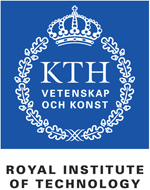2 PhD positions in Robotics and Autonomous Systems in Sweden | KTH - Royal Institute Of Technology
397 0 1 0
Σύγκριση
Προσθήκη στα αγαπημένα
Στοιχεία επικοινωνίας
Brinellvägen 8, SE-100 44. Stockholm
Maria Widlund, HR-Chef
Tel. +46 8 790 97 54
Tel. +46 8 790 97 54
Επιστημονικοί τομείς
- Επιστήμη μηχανικού/ηλεκτρολόγου
- Μαθηματικά
- Πληροφορική
- Φυσική
Φορέας υποτροφίας
Καταληκτική ημερομηνία αιτήσεων
Λήγει: 27/07/2015
Περιγραφή
The scientific work will be conducted in the scope of the following collaborative projects:
roboDREAM – Optimising Robot Performance while Dreaming: Sleep! For hominids and most other mammals sleep means more than regeneration. Sleep positively affects working memory, which in turn improves higher-level cognitive functions such as decision making and reasoning. What if robots could also improve their capabilities in their inactive phases – by processing experiences made during the working day and by exploring – or “dreaming” of – possible future situations and how to solve them best? In RobDREAM we will improve industrial mobile manipulators’ perception, navigation and manipulation and grasping capabilities by automatic optimization of parameters, strategies and selection of tools within a portfolio of key algorithms for perception, navigation and manipulation and grasping, by means of learning and simulation, and through use case driven evaluation.
IPSYS – Interactive Physical Systems: Moduli Spaces, Inference and Control: In this project, we will put focus on the modeling of dynamical systems that have the purpose of interacting with the environment, systems that based on their perceptual capabilities (sensors), control their body and primarily their arms and hands. In robotics, one recent approach has hence been to exploit topological invariances such as winding and linking numbers to control complex systems. The main novel aspect of this project is the introduction of moduli spaces for representing complex interaction tasks considering an appropriate notion of equivalence.
Qualifications:
The candidate must have a master’s degree in an area such as Computer Science, Electrical Engineering, Informatics, Mathematics or Engineering Physics. Documented written and spoken English and programming skills are required. Experience with robotics, computer vision, control systems and machine learning is an important asset.
Applicants must be strongly motivated for doctoral studies, possess the ability to work independently and perform critical analysis and also possess good levels of cooperative and communicative abilities.


